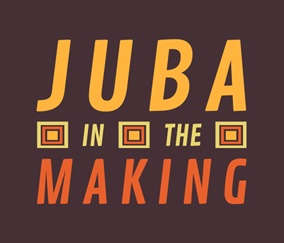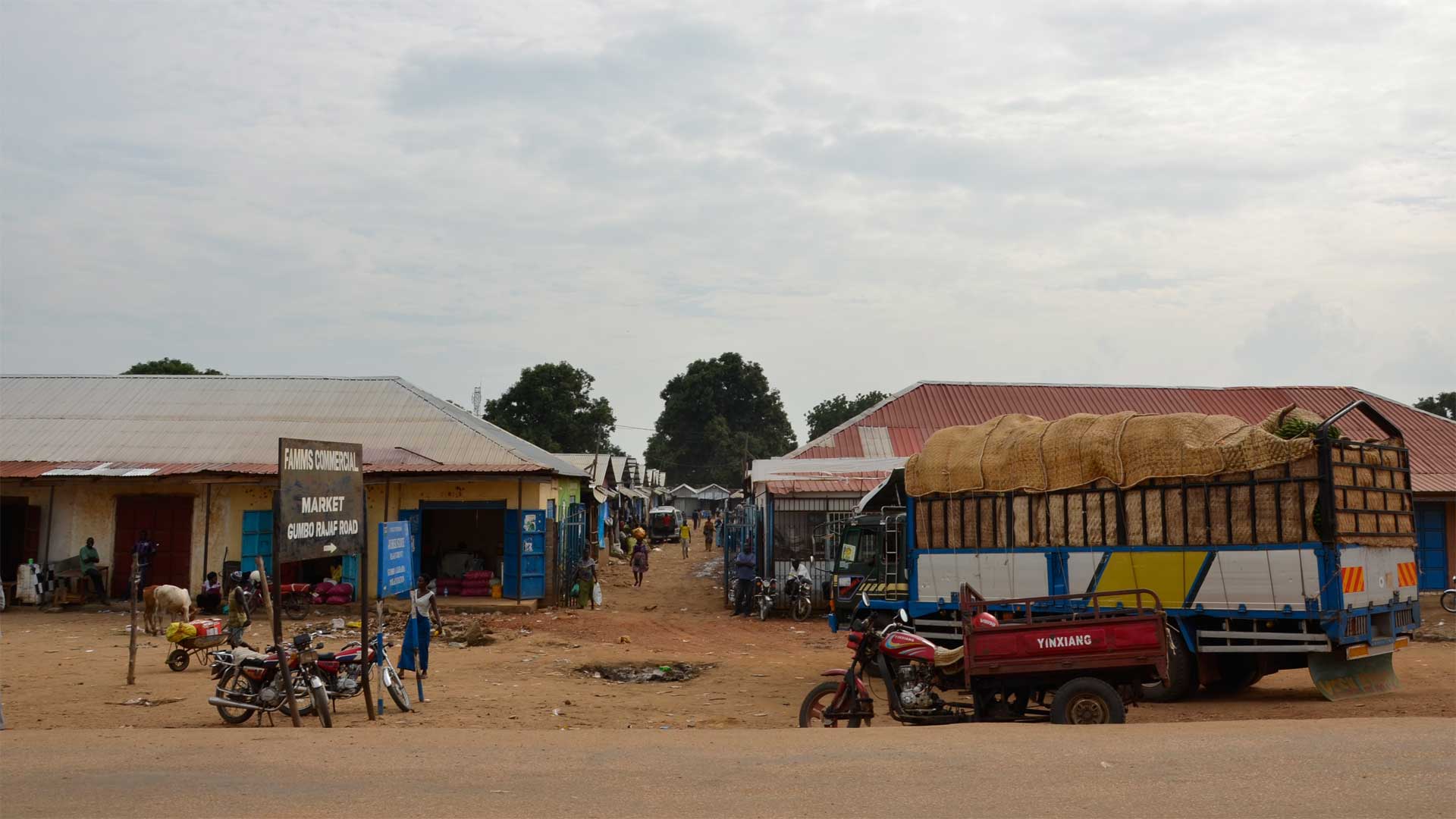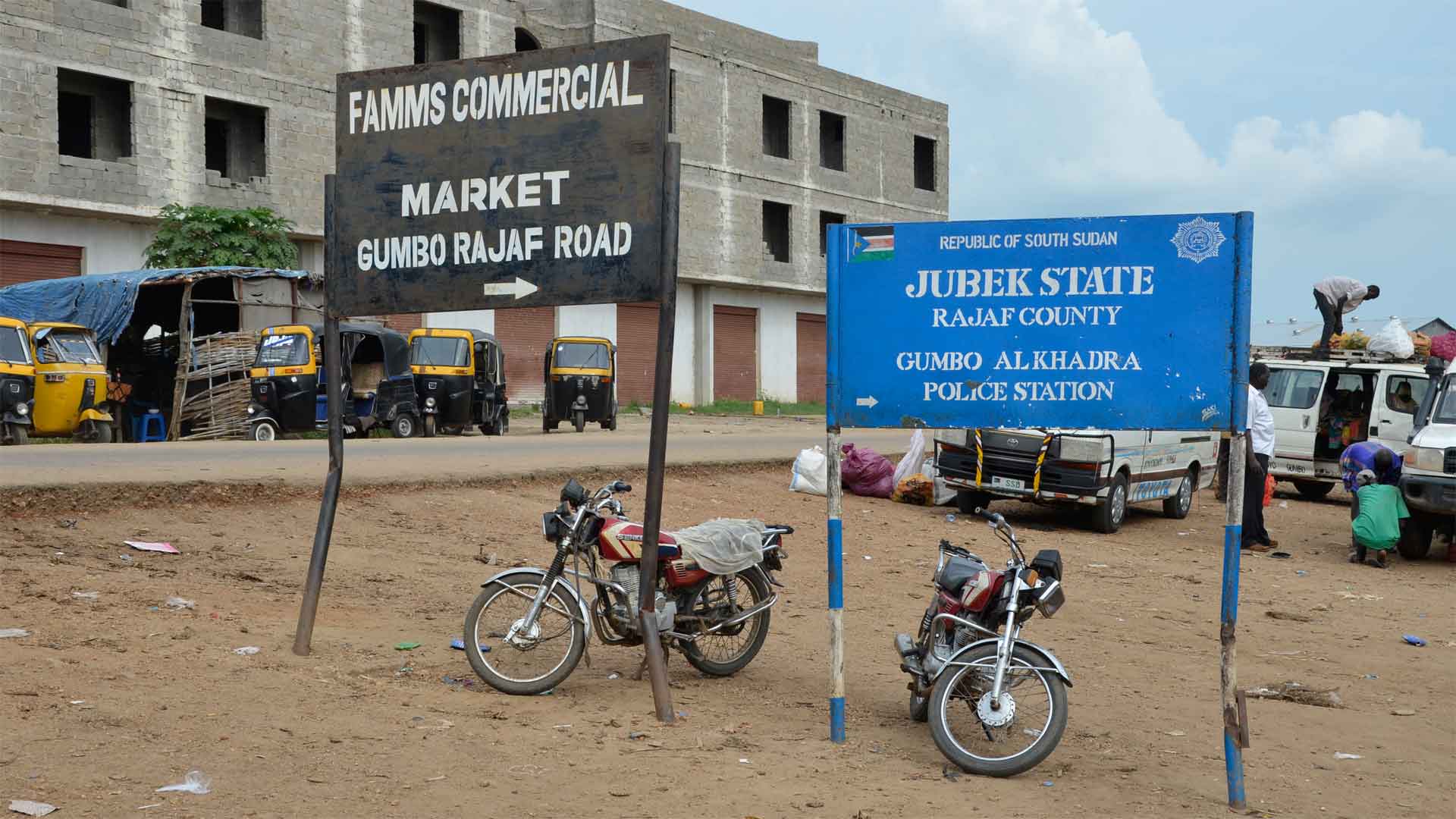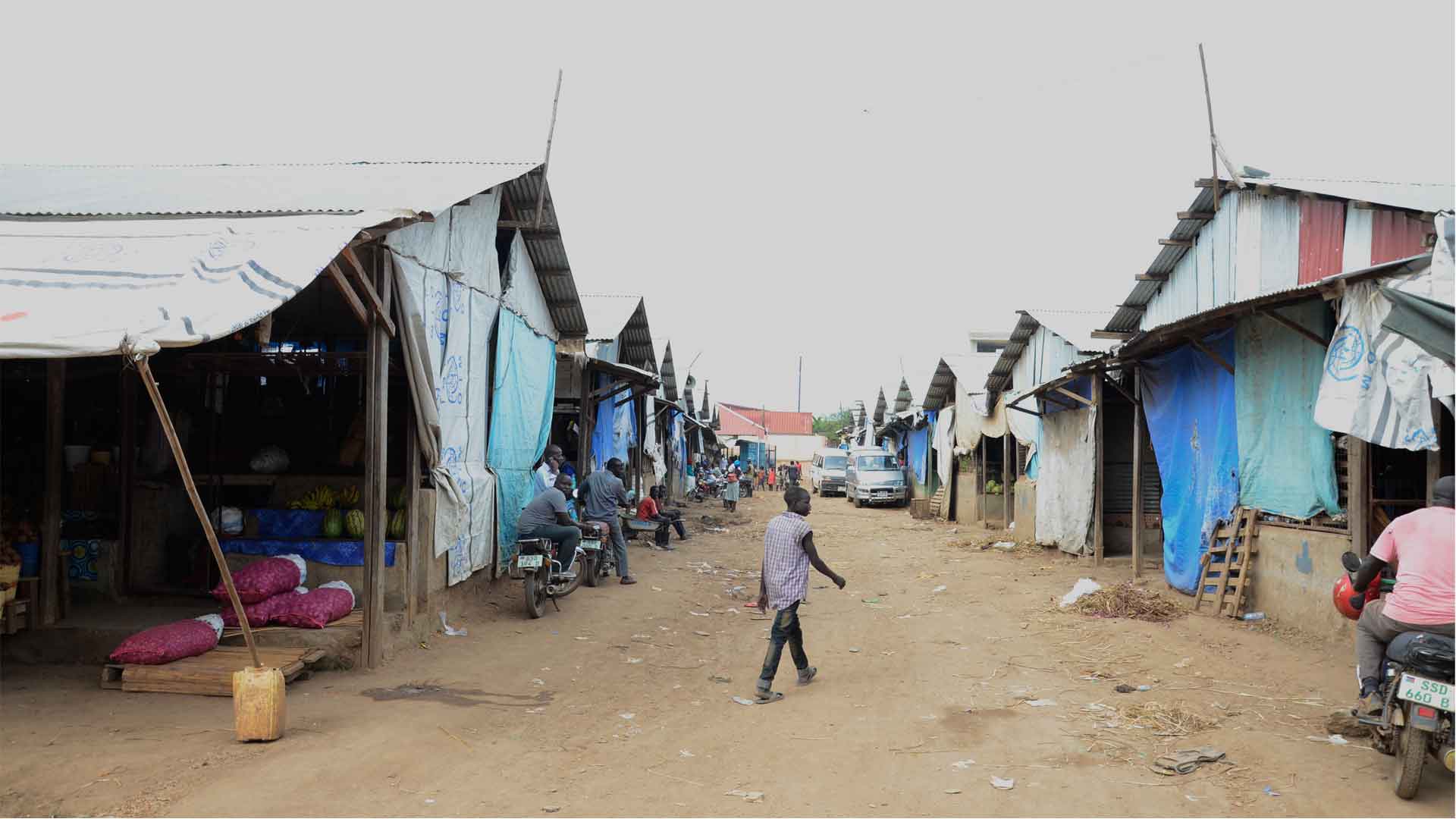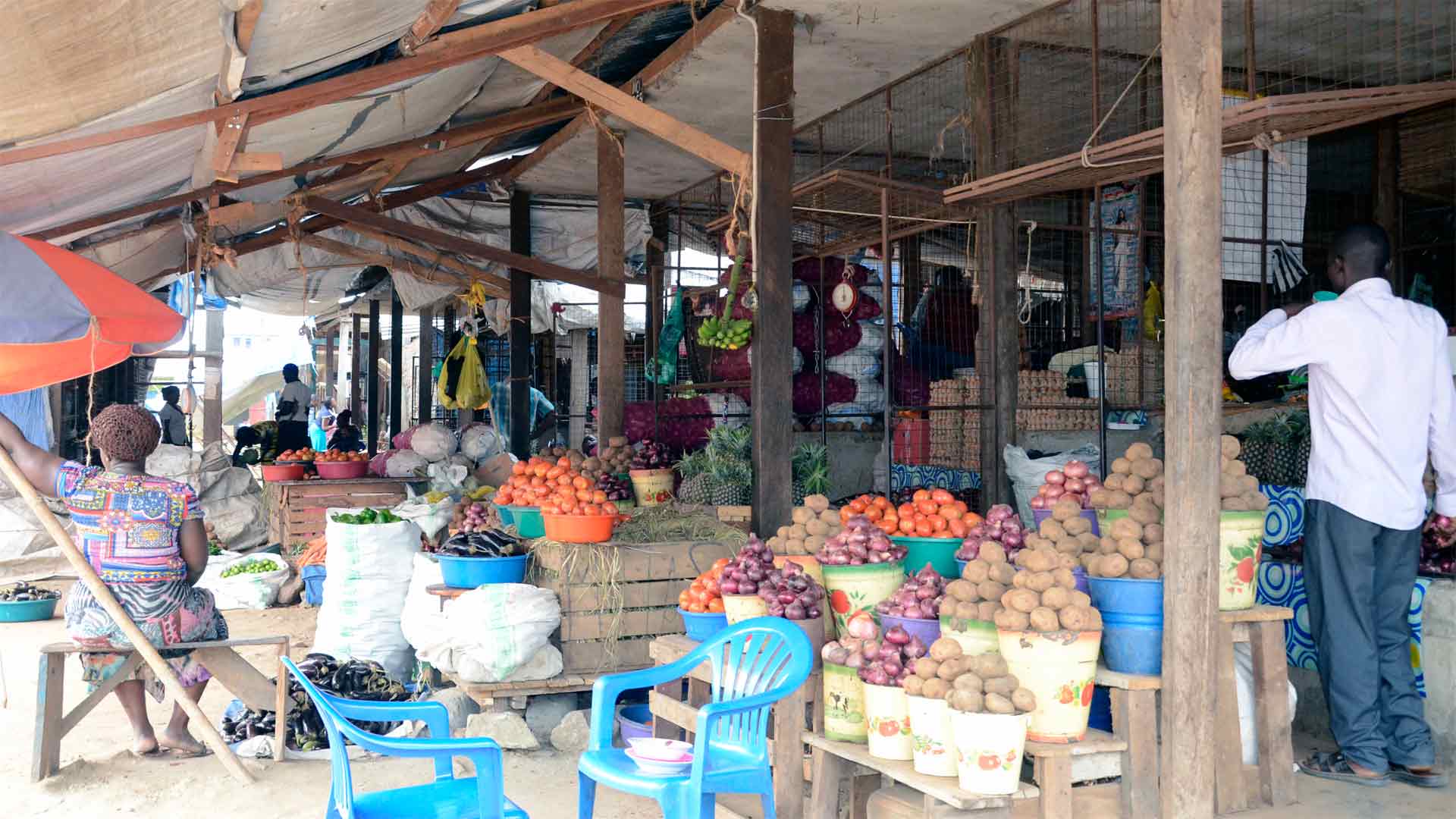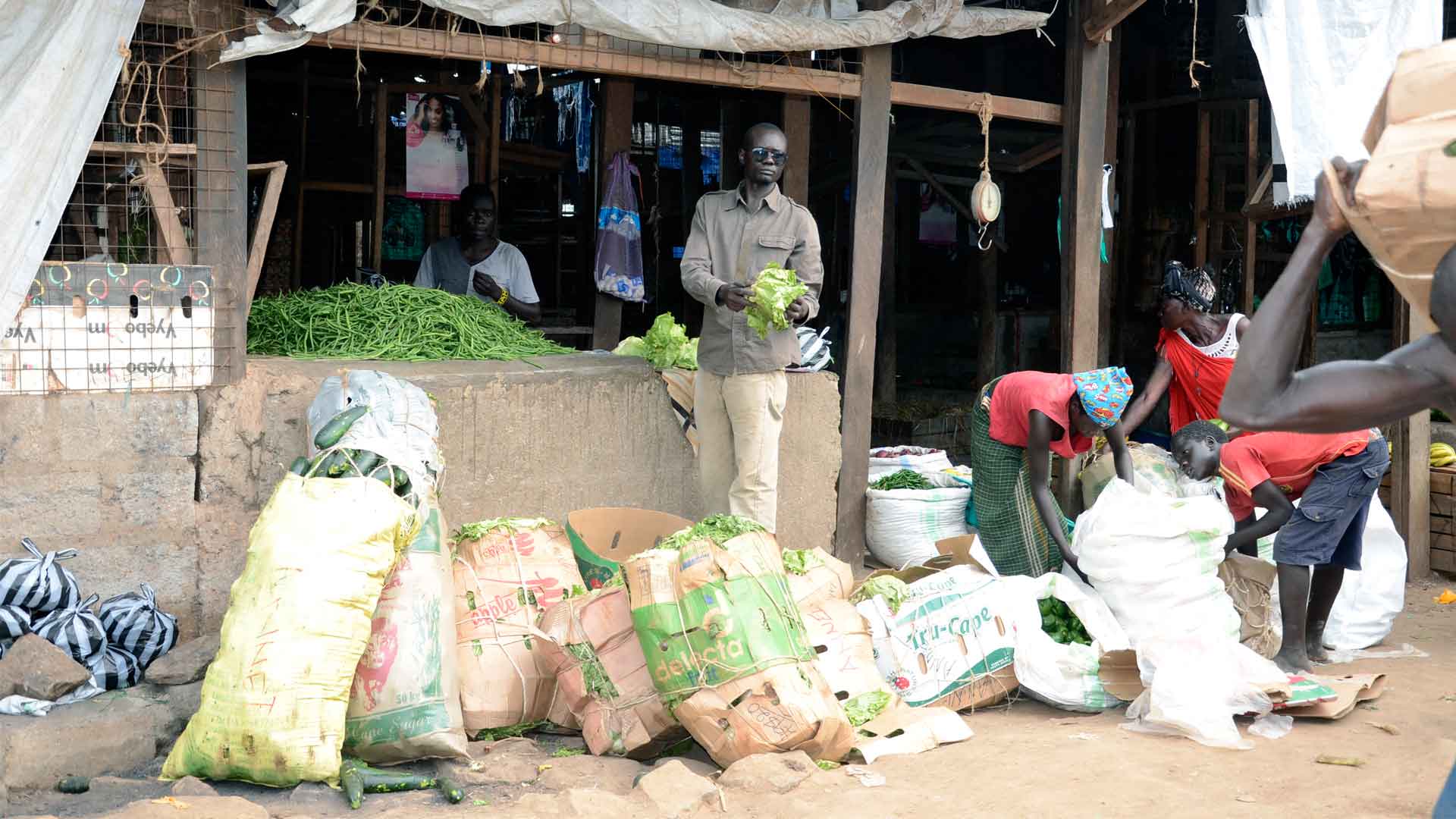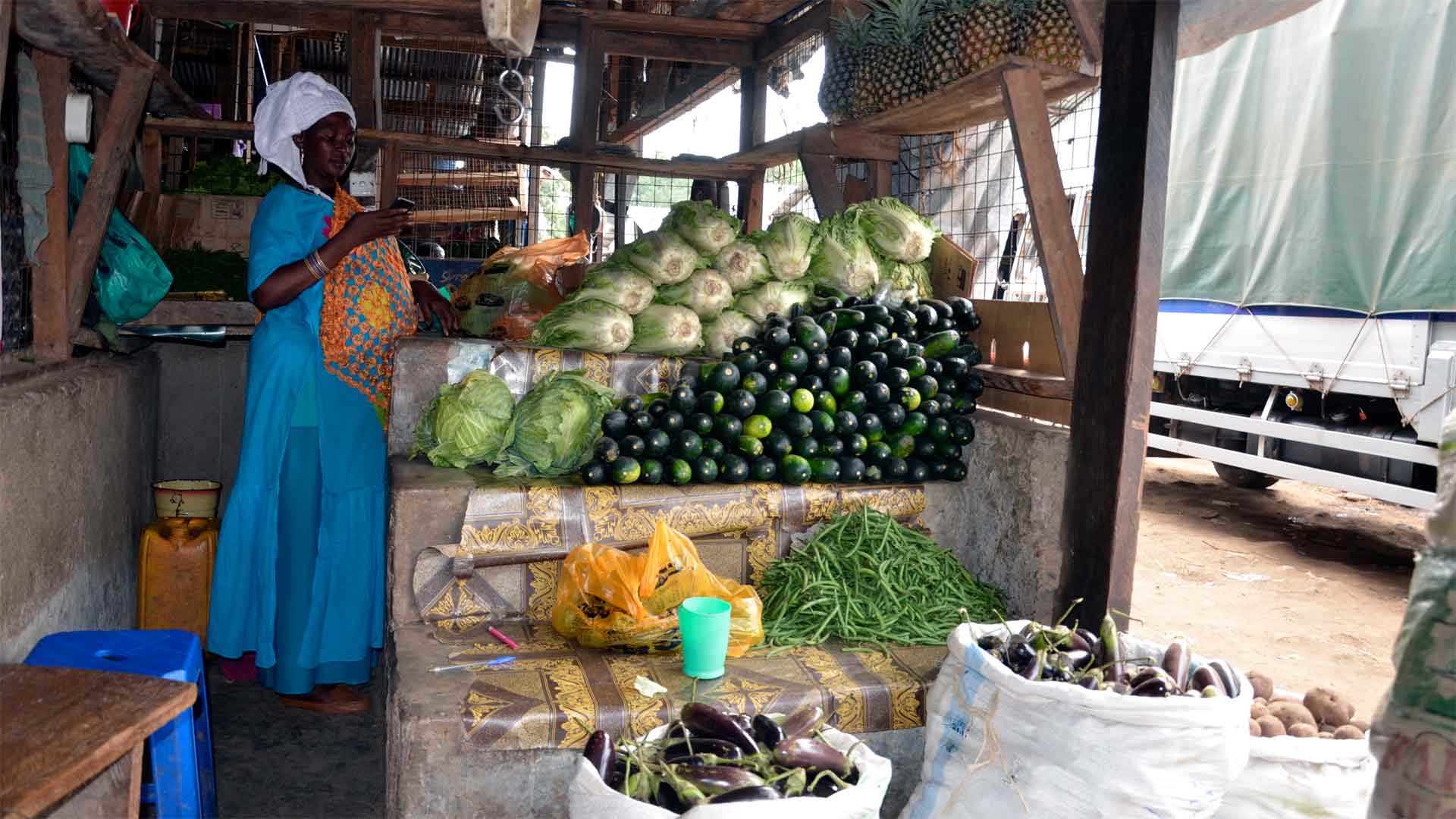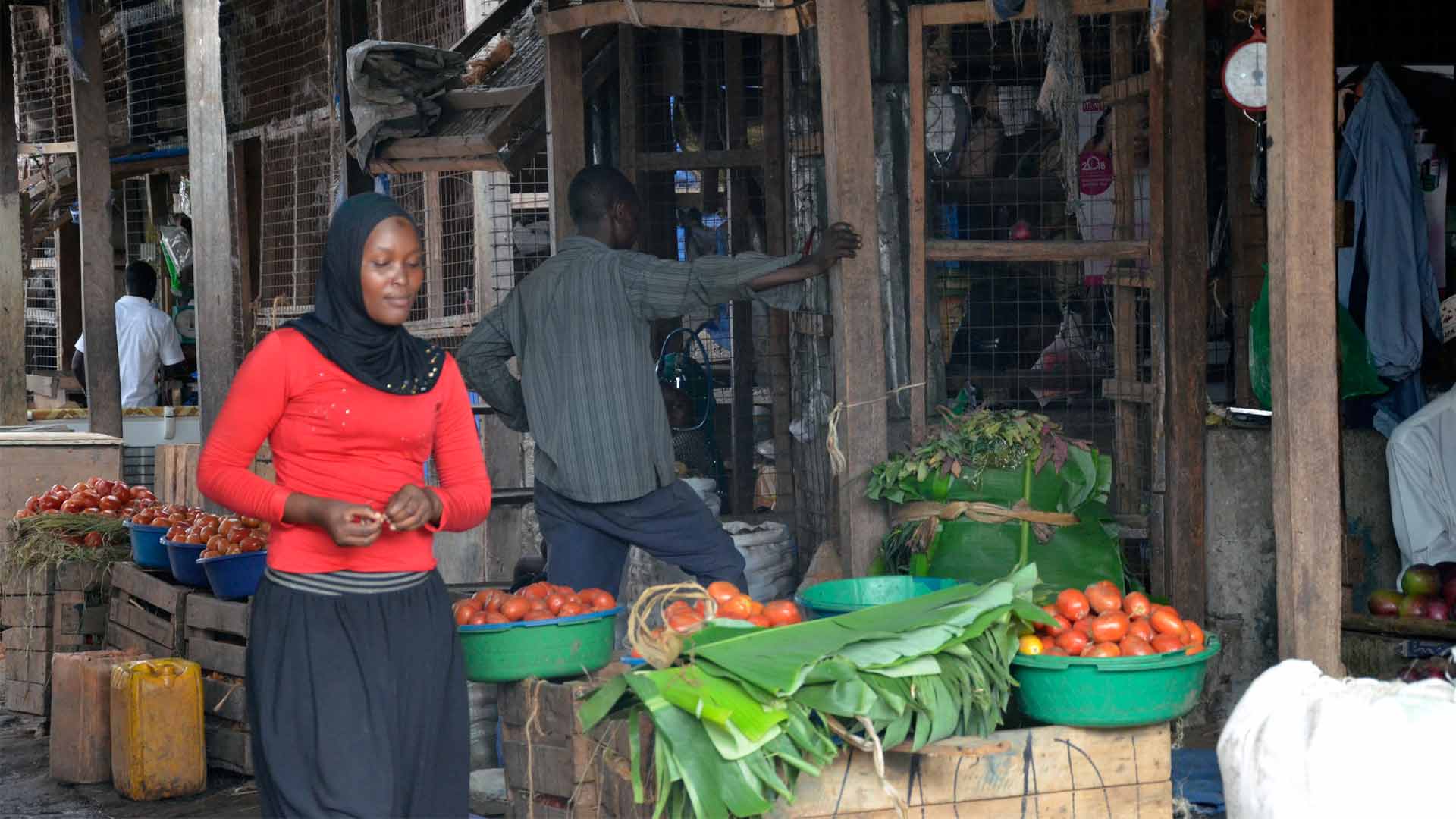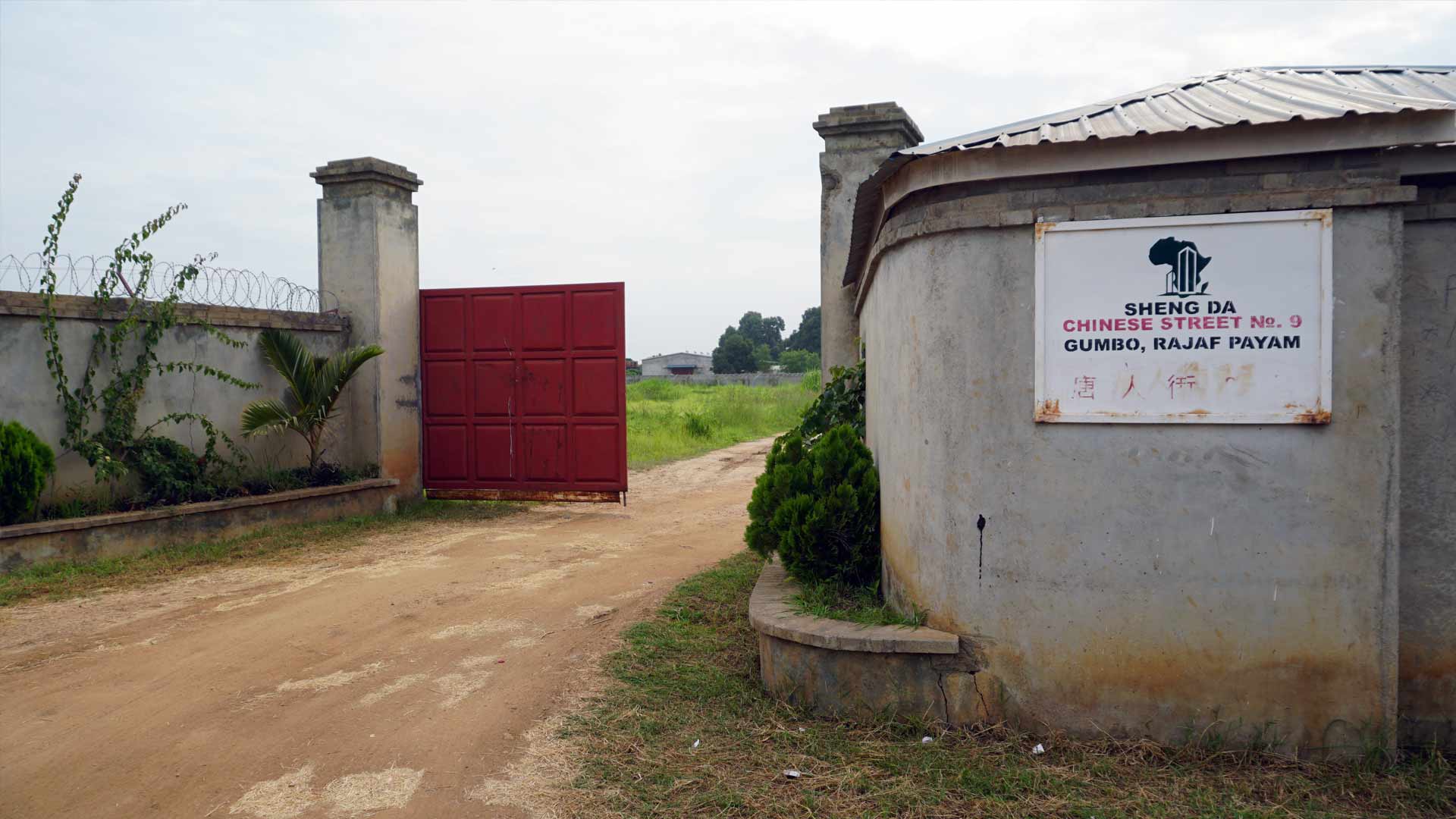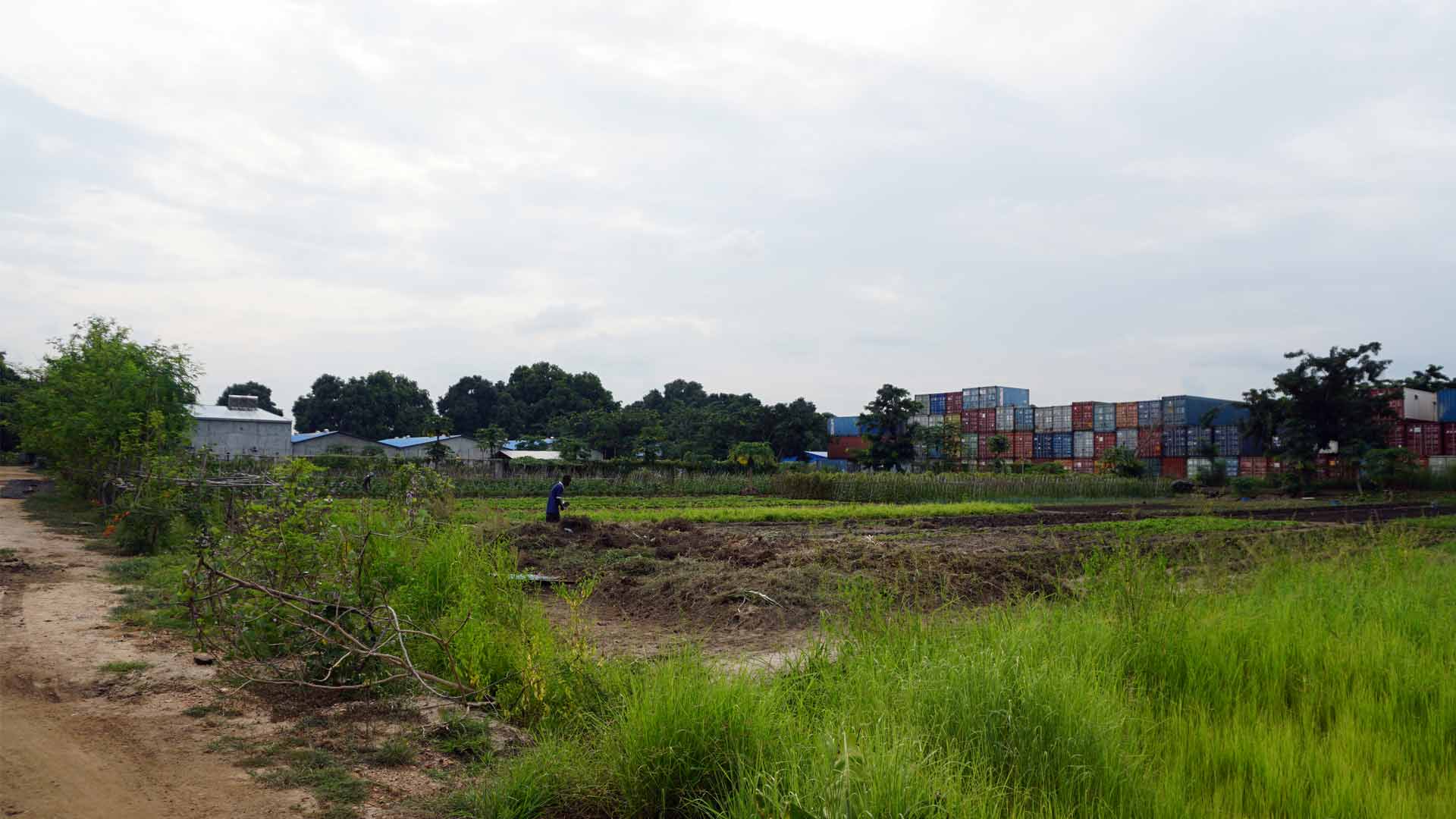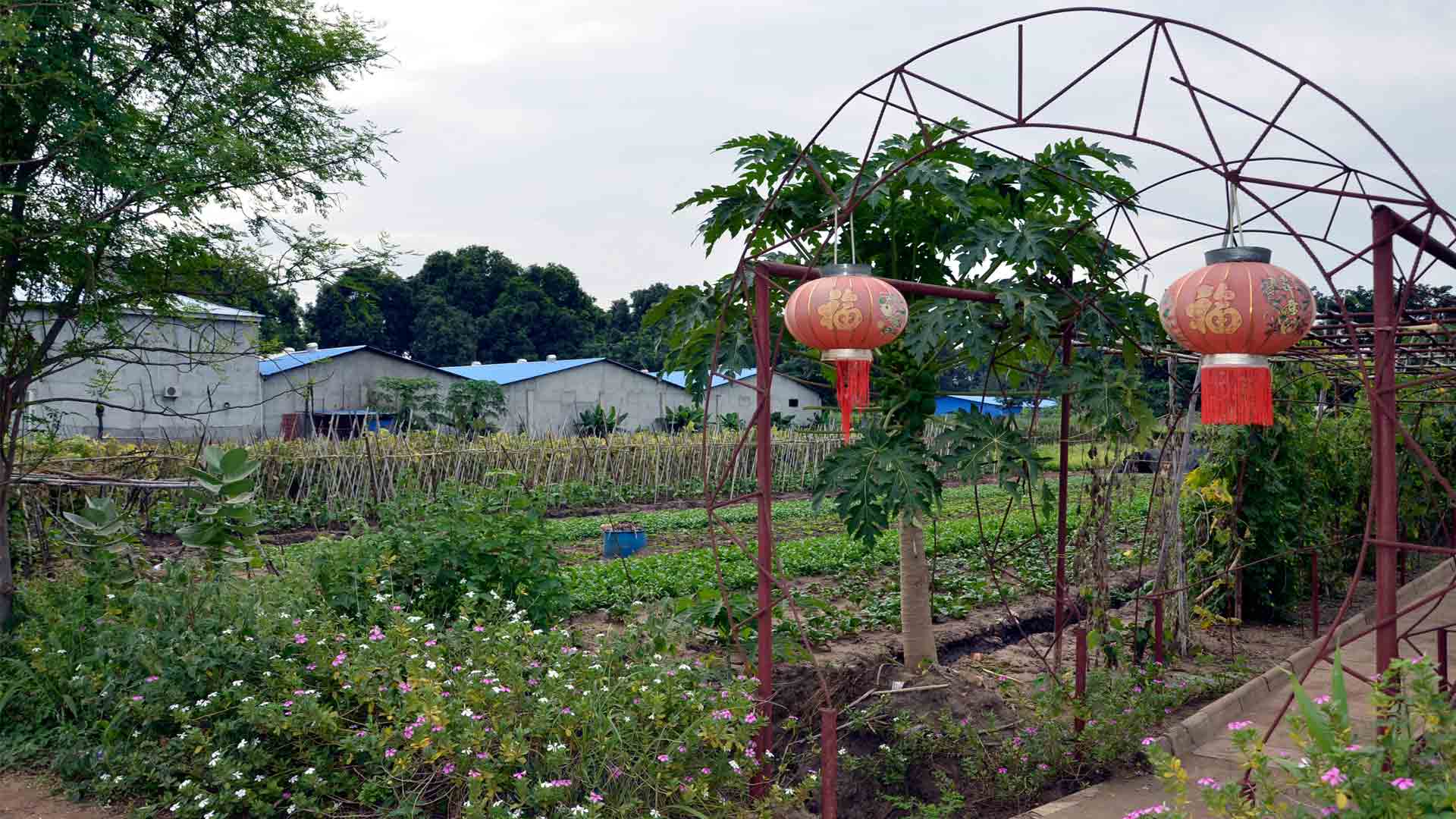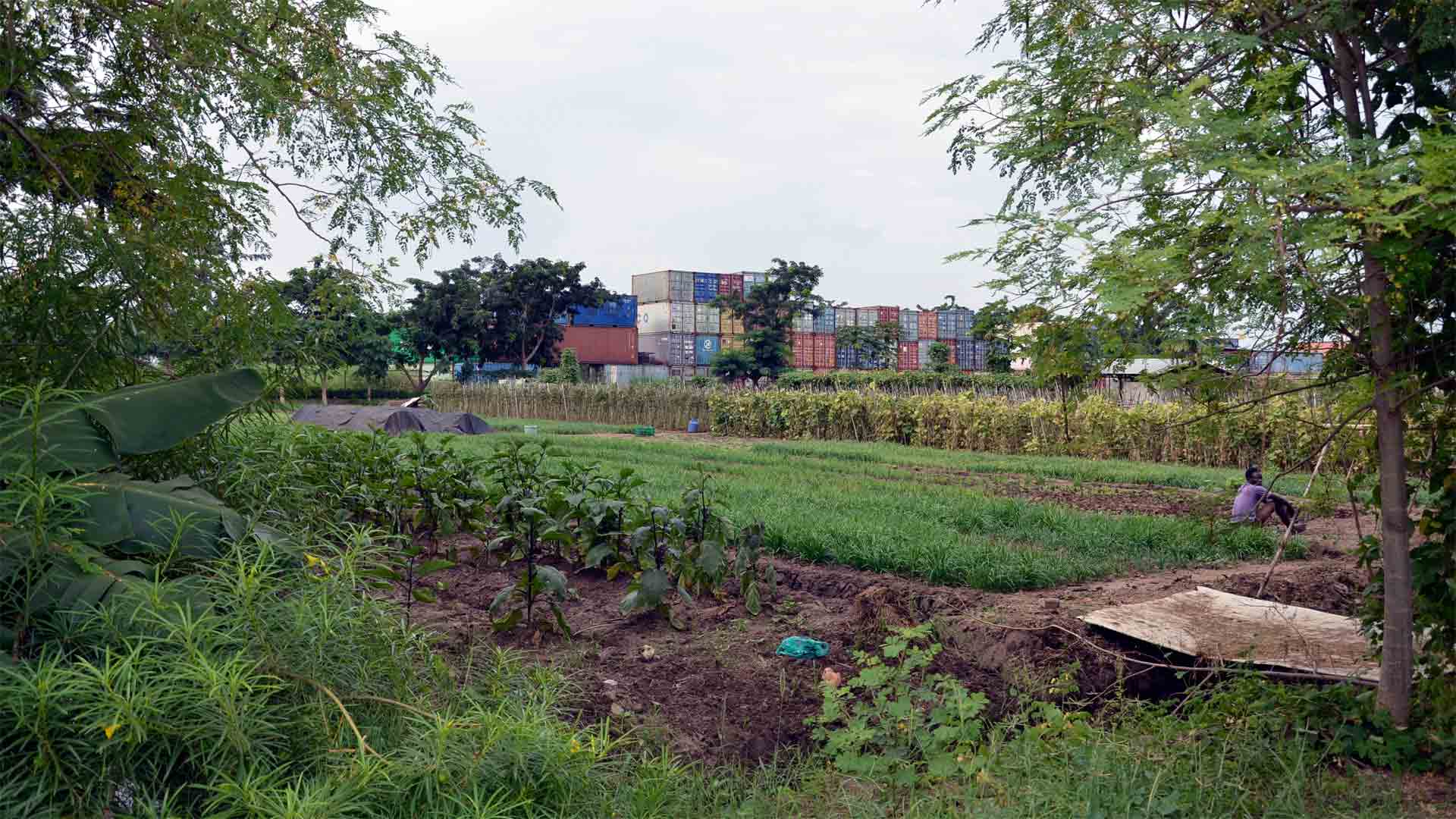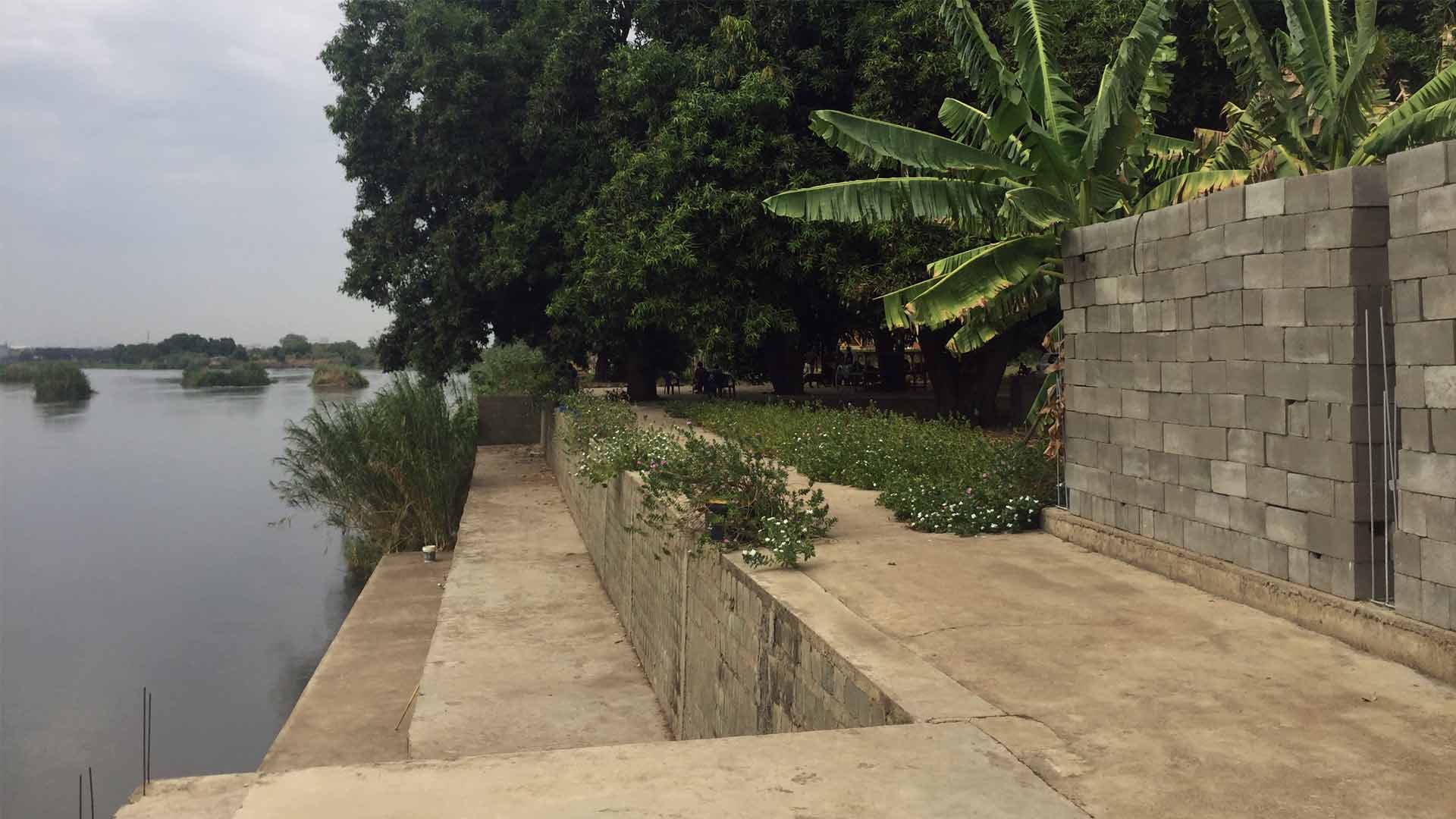Gumbo Sherikat
On the East Bank of the White Nile, a new urban area has developed since 2005 and the signing of the Comprehensive Peace Agreement (CPA), which ended the war with Sudan, paved the way for South Sudan’s independence and attracted thousands of new residents to Juba. This vast district is called Gumbo-Sherikat, a name with Bari and Arabic components: according to Juba elders, Gumbo is a misspelling of Gumba, the name of a woman who used to live in the area. Sherikat means “companies” in Arabic.
Nowadays densely populated and known for its cheap hostels, Gumbo-Sherikat also hosts warehouses, a wholesale vegetable market and several Chinese farms built along the Nile. Their agricultural produce is mainly sold to the Chinese community in Juba and especially the Chinese contingent of UN peacekeepers. The surrounding countryside, which looks like a perfect ground for farming thanks to the river’s proximity, does not show signs of significant agricultural development, Chinese farms aside. Lack of security and uncontrolled presence of cattle are quoted as the main reasons for this puzzling situation. The area is expanding into what is unofficially called Juba 2, with reported cases of land grabbing.


